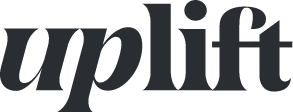THERE'S HOPE HERE
After one of its students was killed, the Orlando-area Boys & Girls Clubs of Central Florida clubhouse knew its young members needed support. They turned to a team led by Assistant Professor L. Trenton S. Marsh to help members navigate their grief and healing, which led to the creation of the H.O.P.E. Circle.
“I started visiting week after week, building a rapport with the students,” Marsh says. “One day, one young man pulled me to the side. He says, ‘Mr. T, there’s hope here.’ So my team and I broke down hope: a Healing Oasis for Peace and Empowerment. The young man gave me the idea. We became a circle that fosters healing and supports positive youth development.”
H.O.P.E. Circle, a youth-led community-engaged research project, supports positive youth development through guided conversation and resources to amplify youth voices on issues identified in their schools and communities, such as gun violence and mental health.
“It is about giving young people a co-created place to share their feelings while teaching them coping strategies,” Marsh says. “Trauma is a real thing, and when trauma-induced events happen, you have to give it not only space but the time and tools to process it in a safe and supportive environment.”
The circle of 15 middle-school aged Black boys comes together weekly in a book-filled space in the Levy-Hughes Clubhouse. They open the floor for the boys to guide conversation, ranging from how they felt at school to what they wish they could change in their communities.
“The premise of H.O.P.E. Circle is the amplification of youth voices — not based upon what we say, but what the students want to focus on,” Marsh says.
“I’m walking beside young people and allowing them to voice their truths while also informing them about participatory research designs so that they see themselves as curious citizen scientists. It started following the death of a young person, but we made it into a transformational experience.”
And it’s having an impact. One boy, often labeled a troublemaker by teachers, describes H.O.P.E. Circle as “a place where you can talk about your feelings and what challenges you.” Another, when asked how he thinks about himself now, only needs two words: “A leader.”
Marsh says the next goal is to expand H.O.P.E. Circle to additional clubhouses statewide, creating a standard curriculum for adult leaders that also allows each group to be dynamic and adjust to the specific needs of its students.
As a researcher, Marsh knows change starts with one young person or classroom at a time. “I’m just amplifying youth voices so we can see the change that they articulate to me and the team weekly,” he says. “Change starts with knowing that your voice matters, and that what you do in this context can impact the trajectory of yourself, family, school or community.”
PARTNER
Orlando-area Boys & Girls Clubs of Central Florida clubhouse
UCF College of Community Innovation and Education
12494 University Blvd.
Orlando, FL 32816
